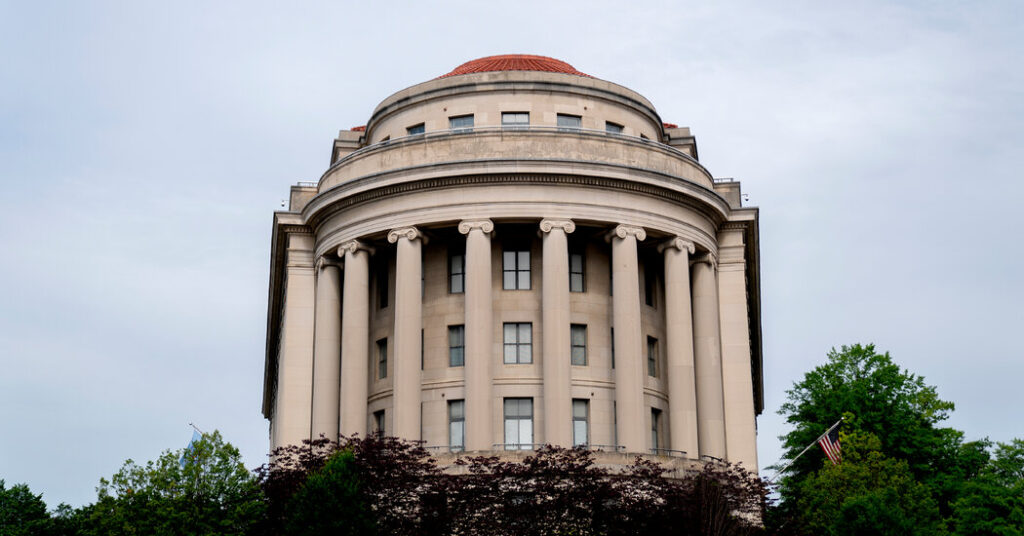For years, Meta has been locked in a fierce rivalry with TikTok.
Meta, the owner of Instagram, Facebook and WhatsApp, has cloned some of the features popularized by TikTok, which won over young people with an endless feed of short vertical videos.
Now TikTok has helped save Meta from a damaging defeat in federal court.
On Tuesday, a federal judge ruled that Meta had not illegally stifled competition by buying Instagram and WhatsApp when they were young start-ups. The judge’s opinion cited the rise of apps like TikTok and YouTube as evidence that Meta did not have a monopoly in social media.
“The landscape that existed only five years ago when the Federal Trade Commission brought this antitrust suit has changed markedly,” wrote Judge James E. Boasberg of the U.S. District Court for the District of Columbia.
To blunt government efforts to rein in the most powerful tech companies, Silicon Valley has increasingly pointed to rapid technological advances. The companies have cited changes, from the ascent of new social media platforms to the explosion of artificial intelligence, to make the case that government regulation is unnecessary or even perilous.
Google convinced a federal judge this year that only modest changes to its business were needed to fix its monopoly in search, after it argued that the tech landscape had changed because of A.I. competition. The company also invoked the new technology in a separate hearing on how to fix its dominance in advertising technology. One of its witnesses testified that forcing Google to spin off pieces of its business would harm small publishers already reeling from the impact of A.I.
Shifts in the tech industry make it harder to win antitrust cases that can drag out for years, legal and industry experts said.
“It’s another encouraging sign for the tech companies,” said Davie Yoffie, a professor at the Harvard Business School who has written on digital competition. “The tough talk on antitrust is looking less and less tough.”
Jennifer Newstead, Meta’s chief legal officer, said in a statement that the ruling “recognizes that Meta faces fierce competition.” A spokesman for the F.T.C., Joe Simonson, said the agency was “deeply disappointed in this decision.”
The industry’s arguments threaten a five-year campaign by the United States, under both the Trump and Biden administrations, to limit the biggest tech companies through a series of slow-moving antitrust lawsuits.
A 2023 lawsuit against Amazon, in which the government accused the company of squeezing the small merchants using its platform, is not scheduled for trial until 2027. The government also sued Apple last year, accusing it of making it difficult for users to leave its ecosystem of devices. A trial date has not been set.
Last year, Judge Amit P. Mehta of the U.S. District Court for the District of Columbia ruled that Google had broken the law to maintain a monopoly in search. A.I. played little role in the 2023 trial that resulted in Judge Mehta’s ruling. But Google spent most of a three-week hearing to determine how to fix the monopoly arguing that A.I. chatbots have upended the way people search for information online.
Judge Mehta agreed. In September, he ruled that A.I. had “changed the course of this case.” He ordered Google to share some data with its competitors but did not force the company to sell its popular Chrome web browser or take other, more drastic measures.
In April, Judge Leonie M. Brinkema of the U.S. District Court for the Eastern District of Virginia ruled that Google had illegally dominated various tools used to place advertisements on pages around the web.
At a hearing this fall to determine how to fix the issue, Google called as a witness the chief executive of wikiHow, a small website featuring how-to guides. Traffic to the site had dropped as internet users turned to A.I. products for answers, said the executive, Elizabeth Douglas. The site would suffer further if the court forced Google to spin off its advertising tools, she added.
Closing arguments in that hearing are scheduled for this week.
Changes in the technology industry echoed throughout the Meta case, too, according to Judge Boasberg’s 89-page ruling on Tuesday.
The government had argued that Meta had a monopoly in “personal social-networking” and identified the company’s main competitor as Snap, the parent company of the Snapchat video app. But Meta’s lawyers contended that the company faced additional competition from social media companies like TikTok and YouTube.
Judge Boasberg noted that he had considered the case multiple times, including when Meta filed motions to dismiss the lawsuit and when both sides asked for the case to be resolved with a summary judgment.
Each time, Meta’s apps “had changed,” Judge Boasberg wrote. “The competitors had, too.”
The rulings are a victory for the tech industry as it stares down years of future litigation, legal experts said.
The traditional hallmarks of monopoly markets include low rates of innovation, unchanging market shares and unchecked pricing power, said Herbert Hovenkamp, an antitrust expert and professor at the University of Pennsylvania’s Carey Law School.
“Big tech does not fit any of those criteria,” Mr. Hovenkamp said. “These are fast-moving, dynamic markets.”
The argument that technology races ahead while courts lag behind has been a familiar theme for decades.
An antitrust case against IBM was settled after 13 years, in 1982, just as the personal computer revolution was taking off, undermining the importance of IBM’s dominance of mainframe computing. And by the time an antitrust case against Microsoft was settled in 2001, three years after it began, the internet market had shifted sharply.
It is still worth trying to check the power of the biggest tech companies, said Rebecca Haw Allensworth, who teaches antitrust law at Vanderbilt University.
“But it does suggest that it’s a problem that antitrust law moves so slowly and courts should move as quickly as they reasonably can to decide these cases,” she added.
David McCabe is a Times reporter who covers the complex legal and policy issues created by the digital economy and new technologies.
The post Technology Is Fast and the Courts Are Slow appeared first on New York Times.




